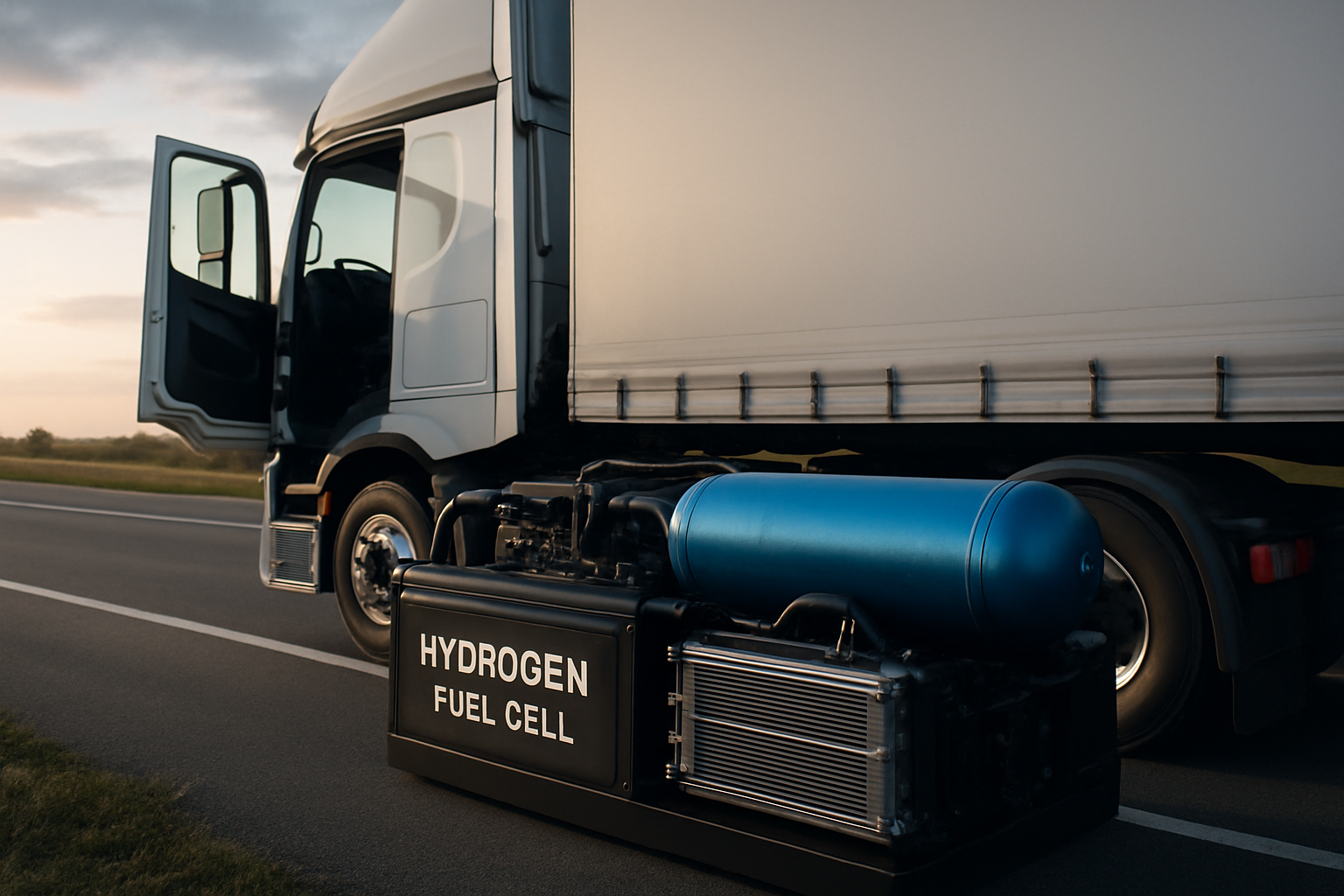Hydrogen-Powered Trucks: Revolutionizing Long-Haul Transportation
The roar of a diesel engine may soon be replaced by the quiet hum of hydrogen fuel cells in the world of long-haul trucking. As the automotive industry seeks cleaner alternatives to traditional fossil fuels, hydrogen-powered trucks are emerging as a promising solution for heavy-duty transport. This technological leap promises to reshape the logistics landscape, offering both environmental benefits and operational advantages that could redefine the future of freight movement.

The Science Behind Hydrogen Fuel Cells
At the heart of hydrogen-powered trucks lies the fuel cell, a device that converts hydrogen into electricity through an electrochemical process. Unlike traditional combustion engines, fuel cells produce electricity without burning fuel, resulting in a clean and efficient energy conversion. The only byproduct of this process is water, making it an environmentally friendly alternative to diesel engines.
Hydrogen fuel cells work by combining hydrogen from onboard tanks with oxygen from the air. This reaction produces electricity, which powers electric motors that drive the truck’s wheels. The system is complemented by a battery pack that stores excess energy and provides additional power during high-demand situations, such as acceleration or climbing steep grades.
Advantages for Long-Haul Transportation
Hydrogen-powered trucks offer several advantages that make them particularly suitable for long-haul transportation. First and foremost is their range. While battery-electric trucks are limited by their energy density and charging times, hydrogen trucks can be refueled in minutes and offer ranges comparable to diesel trucks, sometimes exceeding 600 miles on a single fill.
Moreover, hydrogen fuel cells maintain their performance in extreme temperatures and are not affected by the weight of cargo, unlike battery systems which can see reduced range under heavy loads. This consistency is crucial for long-haul operations where predictability and reliability are paramount.
Infrastructure Challenges and Solutions
One of the primary hurdles facing the adoption of hydrogen trucks is the lack of refueling infrastructure. However, this challenge is being addressed through strategic partnerships between truck manufacturers, energy companies, and governments. The concept of hydrogen highways is gaining traction, with plans to establish refueling stations along major trucking routes.
These stations will not only serve trucks but could also pave the way for wider adoption of hydrogen fuel cell technology in passenger vehicles. As the network expands, it will create a positive feedback loop, encouraging more fleets to transition to hydrogen power and further justifying infrastructure investments.
Environmental Impact and Sustainability
While hydrogen-powered trucks promise zero tailpipe emissions, the overall environmental impact depends on how the hydrogen is produced. Currently, most hydrogen is derived from natural gas through a process called steam methane reforming, which does produce carbon emissions. However, the industry is rapidly moving towards green hydrogen production methods, such as electrolysis powered by renewable energy sources like wind and solar.
As these clean production methods scale up, the full environmental benefits of hydrogen trucks will be realized. This transition could lead to a significant reduction in the transportation sector’s carbon footprint, which currently accounts for a substantial portion of global greenhouse gas emissions.
Economic Implications for the Trucking Industry
The shift to hydrogen power could have profound economic implications for the trucking industry. While the initial cost of hydrogen trucks is higher than their diesel counterparts, the long-term operational costs are expected to be lower. Fuel cells have fewer moving parts than internal combustion engines, potentially reducing maintenance costs and downtime.
Furthermore, as more countries implement carbon pricing and emissions regulations, hydrogen trucks could become increasingly cost-competitive. Fleet operators who adopt this technology early may gain a significant advantage in markets where environmental performance is valued or required by law.
The Road Ahead: Challenges and Opportunities
Despite the promising outlook, several challenges remain on the path to widespread adoption of hydrogen-powered trucks. These include further reducing the cost of fuel cells, expanding the hydrogen production and distribution network, and addressing safety concerns associated with hydrogen storage and handling.
However, these challenges also present opportunities for innovation and job creation in fields ranging from advanced manufacturing to renewable energy. As the technology matures and economies of scale are achieved, hydrogen trucks could become a cornerstone of a more sustainable and efficient transportation ecosystem.
The journey towards hydrogen-powered long-haul trucking is more than just a technological transition; it’s a reimagining of our entire approach to goods movement. As this technology continues to evolve, it has the potential to not only clean up our highways but also to drive economic growth and energy independence. The quiet hum of hydrogen trucks may soon become the soundtrack of a cleaner, more sustainable future in transportation.






